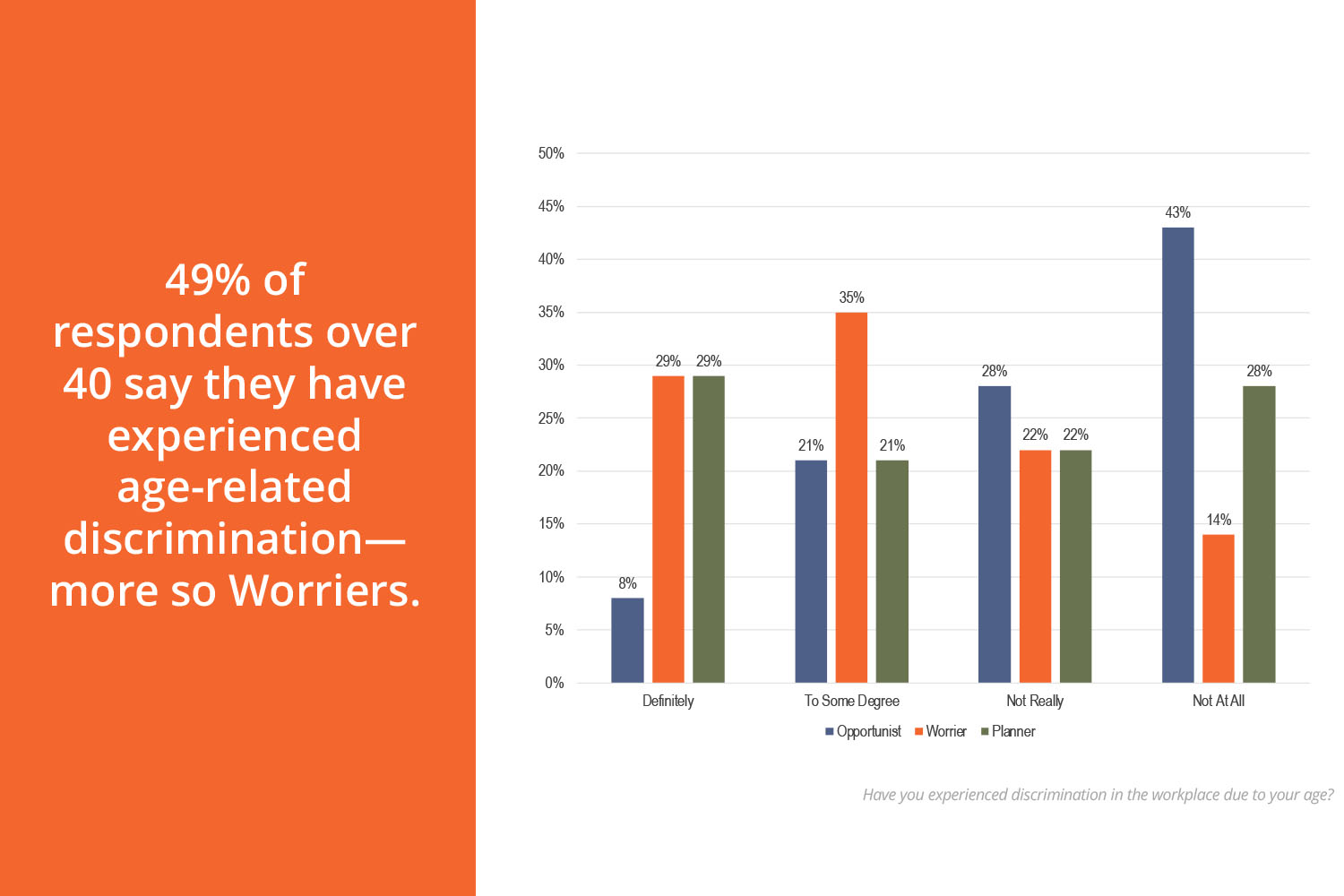Sign up for our LAVY email
and get our bi-monthly newsletter.
Age discrimination is nothing new. However, like many other career-related concerns, the practice—or concerns surrounding it—intensified or became more visible during the COVID-19 pandemic.
This increased uncertainty for many maturing workers undoubtedly inspired them to take a more critical look at their current careers and to explore alternatives that might be more secure in a changing world.
LAVIDGE conducted a national adult education research study post-pandemic. The objective was to learn attitudes of adult learners and define segments that share those attitudes.
The study uncovered three key adult education consumer segments:
This is the third in a series of articles in which we reveal several “Light-Bulb Moments” our post-pandemic research uncovered about adult learners.

Nearly half (49%) of all study respondents over the age of 40 say they have experienced age-related discrimination, with 29% of both Planners and Worriers stating they have “definitely” been discriminated against within the workplace.
It’s easy to see why the U.S. Equal Employment Opportunity Commission (EEOC) and the Civil Rights Center were among government agencies which remained active during the COVID-19 crisis to enforce:
Some of the fallout is just now coming to light including an EEOC law suit filed Sept. 22, 2022, on behalf of a mature worker.
The complaint against a New York based security company alleges a 57-year-old employee was fired based on his disability and age after suffering a heart attack at work in March 2020, early in the pandemic.
A press release issued by the EEOC states that such alleged conduct violates both the Americans with Disabilities Act (ADA) and Age Discrimination in Employment Act (ADEA), which protect employees from workplace discrimination based on disability and age.
Timothy Riera, acting director of the EEOC’s New York District Office, said in the press release, “The COVID-19 pandemic disrupted the American workplace, but never changed the protections under federal law against disability and age discrimination.”
Worriers appear to be the hardest hit, however, with 35% of them indicating they had been discriminated against at work due to their age “to some degree” compared to 21% of both Opportunists and Planners who agreed with the statement.
“The COVID-19 pandemic made employees with disabilities and older employees particularly vulnerable to discrimination based on stereotypes about their ability to work,” Jeffrey Burstein, regional attorney for the EEOC’s New York District Office added. “Those stereotypes are not a lawful basis for employment decisions.”
Meanwhile, as Bloomberglaw.com reports, “Age Discrimination Is Common, Winning Lawsuits Rare: QuickTake.”
“Ageism is a growing concern for societies with advanced economies as their workforces grow increasingly old,” the Daily Labor Report® QuickTake states.
LAVIDGE’s proprietary research reveals that mature members of each attitudinal segment were not affected equally.
Opportunists, at 43%, were most likely among all attitudinal segments to say age discrimination had “not at all” affected them, in addition to 28% who selected “not really” as their response.
Sign up for our LAVY email
and get our bi-monthly newsletter.